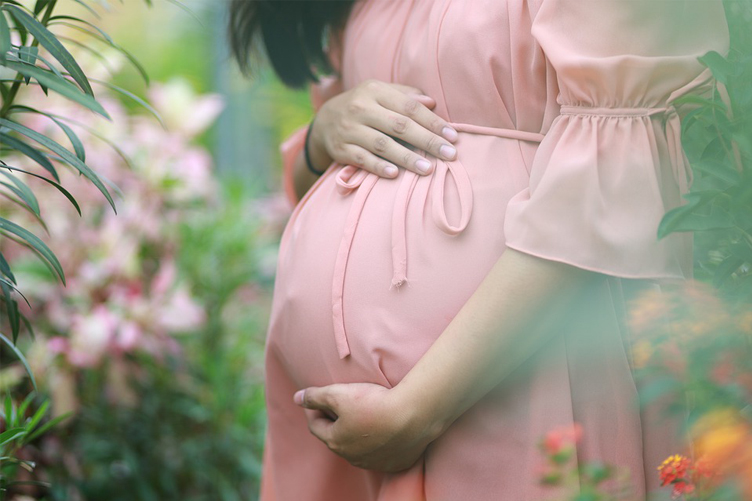Date Published: June 25, 2021
Welcoming a baby and becoming a new parent can be overwhelming, exciting, delightful, and scary altogether at the same time. As you enter parenthood for the first time, you can learn a lot of things along the way. But it’s important to understand its prerequisites as you prepare for this lifetime journey. Below are some nuggets of wisdom that come in handy as you start caring for your newborn baby.
¶ Before your baby's arrival

Having a baby is an exciting milestone for your family. But it’s necessary to remember that there are numerous things to prepare before and after childbirth. Before your baby arrives, make sure to purchase or prepare these items below:
• rectal thermometer
• make and freeze meals
• breast pump
• wet wipes
• nail clippers
• nursing pillow
• cotton blankets
• night lights
• other baby gear and essentials
Take note that in choosing baby skin products choose products without any dyes or fragrances and with the least number of ingredients in general as a good rule of thumb.
It’s important to stay educated, especially when making decisions during pregnancy and childbirth. Before giving birth, experts recommend exercising moderately on a daily basis, researching mental strategies during labor, and refraining from focusing too much on the techniques that work for other moms - remember, it’s your body and your baby.
As first-time parents, you want to be sure about your newborn’s health. Below are some questions to ask your pediatrician during newborn visits:
• How much should I feed my newborn?
• How can I make sure my baby is sleeping as safely as possible?
• Are my newborn's sleep patterns normal?
• What should I expect in my baby's diaper?
For pediatric urgent care, don’t hesitate to call your pediatrician first for professional assistance in emergencies or unexpected circumstances.
¶ During labor and delivery

Getting all your things organized on the day of your childbirth may not be possible. So, prepare all your essentials a few weeks before your scheduled due date. Below are some of the most important things that you need to prepare:
• Comfortable and loose-fitting clothing
• Toiletries
• Bra and nursing bra
• Going home outfit for baby
• Receiving blanket
• Warm clothing to wear home
• Baby socks
• Health plan insurance card
• Hospital admissions papers
• Pregnancy medical file and prescription medicine information
It’s normal for first-time parents to get anxious, especially after childbirth. Reach out to your pediatrician and lactation consultant in the first few days after delivery as they are going to offer you a wealth of knowledge and support.
If you’re wondering when to visit a pediatrician, California Kids Pediatrics recommends 2-3 days after bringing the baby home from the hospital. All breastfed babies lose weight in the first few days after delivery. Unless your baby’s pediatrician says otherwise, follow-up visits as needed until the baby gets back to birth weight. Don’t forget to contact your pediatrician to arrange your first appointment as soon as you are discharged from the hospital.
As soon as you get used to your brand new life as parents, it’s still important to welcome guidance and help from loved ones, friends, and professionals, especially in matters concerning your baby’s health.
¶ After childbirth or going home with your baby
.jpg)
As soon as you get home with your baby, it’s important to take note of newborn information until you get the hang of it in the days and weeks to come. Expect the first few months to be very challenging for you and your partner. To focus on taking care of your baby, take that maternity/paternity leave, and don’t hesitate to ask for help from your family and friends
Essentially, you want to keep track of your baby’s hydration. As a rule of thumb, a 3-day old baby should make at least 3 wet (urinary diapers), 4- day old at least 4 wet diapers, and so on until you see your pediatrician and discuss further. In the first 3-5 days of your baby’s life, bowel movements should change from black to brown to green to yellow.
In addition, take note of your baby’s hydration status. If you notice that your baby's tongue looks dry or that in the diaper you see an orange stain, this may be a sign of dehydration, and you need to call your Pediatrician.
Your pediatrician will guide you through an in-depth understanding of your children's health needs, developmental milestones, review of normal behaviors and will help to optimize the care for a child's growing, developing body.
California Kids Pediatrics offers high-quality services for you and your kids! Our mission is to provide thorough and thoughtful medical care in the most comfortable of environments. Throughout this challenging time, your health and safety remain our top priority. We are currently accepting new patients and look forward to offering your family exemplary medical care and consideration.
Good news for soon-to-be parents, we offer complimentary prenatal meet and greets for expecting parents! For more information about our services, please feel free to call us at 424-277-2020 or email us at contact@CalKidsPeds.com to schedule an appointment or ask any questions.
